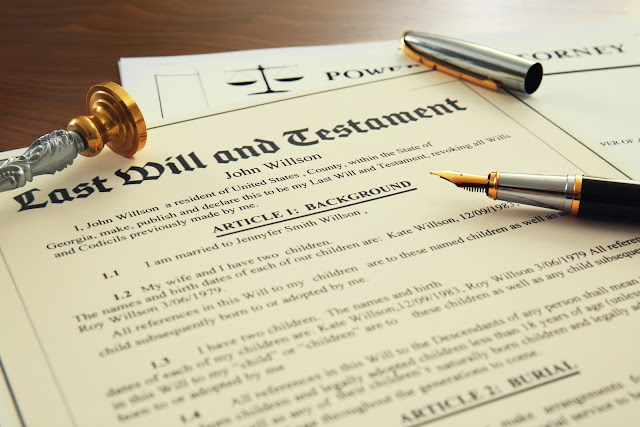Discussing estate planning with aging parents can be a
delicate yet essential conversation. Ensuring their wishes are respected and
their assets are protected requires careful planning and open communication.
Here are some strategies to help you approach this important topic.
Start the
Conversation Early
Initiating the conversation about estate planning early can
make the process smoother and less stressful for everyone involved. It is
important to approach the topic with sensitivity and respect, recognizing that
it can be an emotional subject for your parents.
Choosing
the Right Time and Place
Select a comfortable and private setting for the discussion,
free from distractions. This allows your parents to focus and feel more at
ease. Consider timing the conversation around significant life events or
changes in health that highlight the importance of planning.
Emphasize the
Importance of Estate Planning
Explain the benefits of estate planning, such as ensuring
their wishes are honored, reducing potential conflicts among heirs, and
minimizing legal and financial complications. Highlighting these advantages can
help your parents understand the necessity of creating or updating their estate
plan.
Engage
Professional Help
Involving professionals can provide reassurance and clarity.
Suggest consulting with local estate lawyers who can guide your parents
through the process and answer any legal questions they may have.
Key Topics to
Address
Wills
and Trusts
Discuss the importance of having a Will or trust in place.
These documents outline how your parents’ assets should be distributed and can
include specific instructions for personal belongings, financial assets, and
real estate. An attorney for will
preparation can help draft these documents to ensure they are legally sound.
Power
of Attorney
Ensure your parents understand the importance of appointing a
power of attorney. This individual will make financial and medical decisions on
their behalf if they become incapacitated. It is crucial to choose someone
trustworthy and capable of handling such responsibilities.
Healthcare
Directives
Healthcare directives, such as living wills and healthcare
proxies, specify your parents’ wishes regarding medical treatment and
end-of-life care. Discussing these preferences can prevent difficult decisions
for family members during medical emergencies.
Estate
Administration
Explaining the role of Estate Administration
Attorneys can help your parents understand how their estate will be managed and
distributed after their passing. These attorneys handle the probate process,
ensuring that assets are allocated according to the Will and legal
requirements.
Handling
Emotional Reactions
Estate planning can be an emotional topic, and your parents
may have strong reactions. Be patient and empathetic, allowing them to express
their feelings and concerns. Reassure them that the goal is to honor their
wishes and protect their legacy.
Encourage
Open Communication
Promote open and ongoing communication about estate planning.
Regularly check in with your parents to review and update their plan as needed.
This helps address any changes in their financial situation, health, or
personal preferences.
Utilizing
Professional Resources
Engaging
a Probate Lawyer
A probate lawyer can provide valuable
assistance in navigating the legal complexities of probate. They can ensure
that the estate is administered efficiently and in accordance with the law.
Seeking
Advice from Local Experts
Working with local estate lawyers familiar with the laws and
regulations in Delaware County, Chester County, and Lancaster County can
provide tailored guidance. They can help draft and review documents to ensure
they comply with state-specific requirements.
Encourage
Planning for the Future
By addressing these matters now, your parents can ensure
their legacy is preserved and their wishes are fulfilled. Ready to start the
conversation? Contact Us Today for a free consultation.
This blog was originally posted on https://pa4law.com/how-to-discuss-estate-planning-with-your-aging-parents/






























